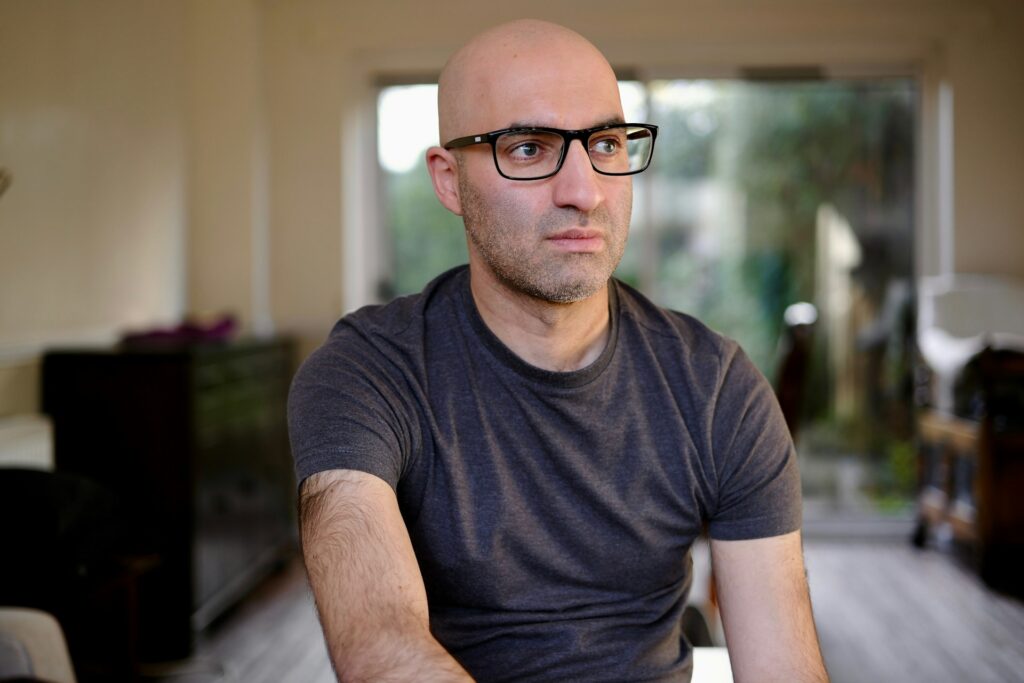Not everyone who seems self-assured actually feels that way.

Insecurity often wears a mask—one built out of quick deflections, casual humour, or throwaway comments that keep people from seeing what’s really going on underneath. These phrases might not sound dramatic, but they’re often used to steer attention away from vulnerability. They’re little habits of speech that suggest someone’s trying to keep control of the narrative because they don’t feel secure enough to let their guard down. If you hear these often, you might be catching a glimpse of confidence that’s still under construction.
1. “It’s not a big deal, I don’t really care.”

This line often comes after they’ve clearly been disappointed, but they don’t want to seem affected. Shrugging it off becomes a way to pretend something didn’t hurt, even when it clearly did. Insecurity doesn’t always come with big reactions. Sometimes it shows up in minimising language, where someone tries to sound unfazed just to avoid looking like they wanted something they didn’t get.
2. “I just prefer to stay in the background.”

Some people genuinely enjoy keeping a low profile, but for others, this is a subtle way to excuse themselves from being seen. It’s a way to opt out of attention before it even becomes a possibility. When someone lacks confidence, the idea of being noticed can feel threatening. So they frame it as a preference, rather than admit they’re afraid of being judged or coming up short.
3. “I’m sure I’ll mess it up anyway.”

This line gets thrown out like a joke, but it usually holds more weight. It’s a pre-emptive strike—if they expect failure first, it hurts less if it actually happens. Low confidence often leads people to lower expectations for themselves out loud, hoping other people will either disagree or not expect much either. It’s protection wrapped in self-deprecation.
4. “I’m not really the expert, but…”

Even when they know what they’re talking about, some people add disclaimers before they speak. It’s a way to soften their presence in a room—like asking for permission to be taken seriously. Their hesitation isn’t them being humble. It’s them not feeling worthy of the authority they already have, and trying to avoid the sting of being dismissed.
5. “I probably sound ridiculous, but…”

This phrase gets used to downplay something meaningful before anyone else can. It’s a subtle way of saying, “I know this might sound dumb, so don’t judge me too harshly.” People say this when they’re trying to protect themselves from embarrassment. It’s not that they believe what they’re saying is silly—they just fear being made to feel that way.
6. “I’m fine with whatever, honestly.”

Insecure people often defer to other people not because they’re flexible, but because they’re afraid their preferences won’t be respected. Saying they’re “fine with anything” keeps them safe from rejection. It sounds agreeable, but deep down, it’s about not wanting to take up space or be seen as difficult. As time goes on, that habit can definitely destroy a sense of self-worth.
7. “You’re probably thinking I’m too much right now.”

This kind of statement comes from someone who constantly monitors how they’re being perceived. They might be opening up, but they’re bracing for disapproval while they do it. It’s a mix of vulnerability and damage control. They share something, then rush to apologise for it because they’ve internalised the idea that they’re somehow too intense, too emotional, or just too visible.
8. “That’s just how I am—I can’t help it.”

This gets said when someone feels exposed and doesn’t know how to fix it. Rather than confront a shortcoming or pattern, they frame it as unchangeable and hope people will accept it without challenge. Insecurity can lead people to freeze their growth, especially when they’re afraid of criticism. This phrase creates a protective wall, even if it keeps everyone else at a distance.
9. “I don’t really have strong opinions about stuff like that.”

Sometimes, people use neutrality as a defence mechanism. By claiming not to care, they avoid having their views judged or questioned. Of course, everyone has opinions—it’s just that insecure people worry theirs won’t hold up in conversation. So instead, they retreat behind indifference to stay safe.
10. “I always attract the wrong kind of people.”

This is usually said with a laugh, but underneath is a belief that they’re somehow not good enough to be treated well. It becomes easier to blame luck than to risk asking for better. It’s not about arrogance; it’s about protection. If they expect disappointment, they won’t be shocked when it comes. That mindset makes them more likely to settle.
11. “People always take what I say the wrong way.”

When someone lacks confidence, they often feel misunderstood or unseen. However, instead of asking for clarity or connection, they write it off as a pattern they have no control over. This distances them from responsibility and avoids deeper reflection. It also lets them pre-emptively dismiss feedback without ever really engaging with it.
12. “I know this isn’t a big deal to anyone else, but it is to me.”

Here’s a quiet way people try to validate their own feelings while expecting them to be dismissed. It’s a defence and a disclaimer rolled into one. Insecurity often tells people their emotions are inconvenient. So they learn to apologise for having them, even before anyone else reacts.
13. “I don’t usually talk about this stuff.”

This line usually comes when someone’s opening up but feels exposed. It’s their way of saying, “Please handle this carefully—I’m not used to being this honest.” It’s not a manipulation tactic. It’s a sign that they’ve been burned before, and they’re trying to protect themselves even as they take the risk of being vulnerable.
14. “I’m sure you’ve got more important things to deal with.”

Some people downplay their needs out of fear they’ll be seen as a burden. By assuming they’re an inconvenience, they make it easier for other people to walk away without guilt. Low confidence doesn’t always shout—it often whispers. And phrases like this are how people shrink themselves to avoid rejection.
15. “I’m probably overthinking this.”

Even when they sense something’s wrong, insecure people second-guess their own instincts. Saying this softens their concern in case they’re met with dismissal. It’s a way of testing the waters. If you validate their feelings, they might open up more. But if you dismiss them, they’ll retreat and blame themselves for bringing it up.
16. “I just try not to take things too seriously.”

On the surface, it sounds like an easygoing attitude. But sometimes it’s a shield—a way of saying, “If I act like nothing affects me, then no one can hurt me.” Humour and detachment often serve as a hiding place for deeper insecurity. And this phrase, while seemingly casual, can be a quiet admission of someone not feeling safe enough to show how much things really matter to them.


